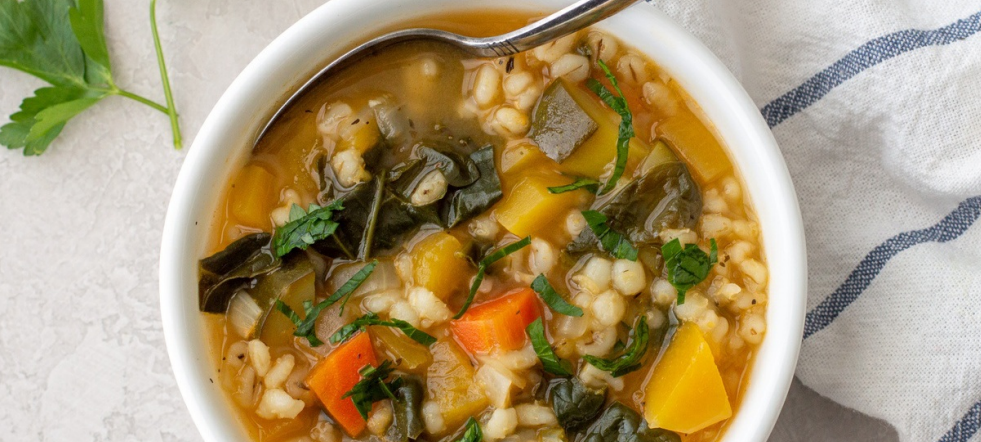
Simple satisfying soups
The fourth of February was Homemade National Soup Day. To celebrate this, I will be looking at the value of adding homemade soups to your meal planning, how you can easily increase your vegetable intake, as well as lifestyle and health benefits of soup. I firmly believe that good food does not have to mean spending hours in the kitchen cooking up an impressive meal. Good food is more about the thought and the ingredients that go into a meal, it is about nourishing ourselves and our loved ones.
Soups are so versatile, they can either be a starter to a meal or the star of the show. When looking at lifestyle, especially in these cold winter months, soups are the perfect lunch option to take on the road or to school. They are easy to transport in a thermos and can be very nourishing and warming. Before going grocery shopping, I check the vegetable drawers of the fridge putting aside any vegetables that I know I will not be using the following week, or any that look a little ragged, these will be chopped and used in a soup. Not only does this reduce our food wastage but it is also a good way of keeping my fridge drawers in order. When making soups bear in mind that by doubling up on the quantities and a few extra minutes of work, you will have enough to freeze ready for a lazy day.
Soups can be adapted to all dietary requirements. From vegetarian to vegan to ketogenic, there is a soup for everyone. If you do not like the idea of making a soup in the evening for dinner, then why not use a slow-cooker and just let it simmer away all day, this vegetable barley soup is the ideal candidate. Adding meat making it into a stew will provide you with a very hearty meal, or if you are vegetarian, then maybe some lentils instead.
Introducing soups to young children is a simple way of getting them to try out new flavours and vegetables. To balance out these flavours for those who are unsure of them a little grated parmesan can always be sprinkled on top to give the soup a creamy texture. For those who have digestive issues and find that the fibers in vegetables can be harder to digest, soups are a good option as these fibers have already been partially broken down, this will help to relieve the stress on the digestive system as well as ensuring they have a healthy vegetable intake.
There are several health benefits to soups, that make them such an ideal meal to include in your meal planning. We know that vegetables lose some of their nutrient content when boiled, however with a soup, these nutrients are to some extent maintained within the juices, so that you get most of the goodness from your vegetables.
As soups are essentially liquids, it makes them easy to digest, so if you are someone who does not like eating a big meal in the evening, then a soup could be just the thing for you. Or when we are unwell, there is nothing like a homemade chicken soup to help us feel better.
As with any food that you make at home, you know what is going into your pot. When cooking soup at home you can season it to your liking without worrying about high amount of salt and sugar that are present in commercial soups.
Soups, can also be eaten year-round, with warm and soothing soups in the winter, and light fresh, zesty, cooling ones in the summer.
Send your nutrition questions to susan@susanalsembach.com
Photo: Kim Deachul, Unsplash










